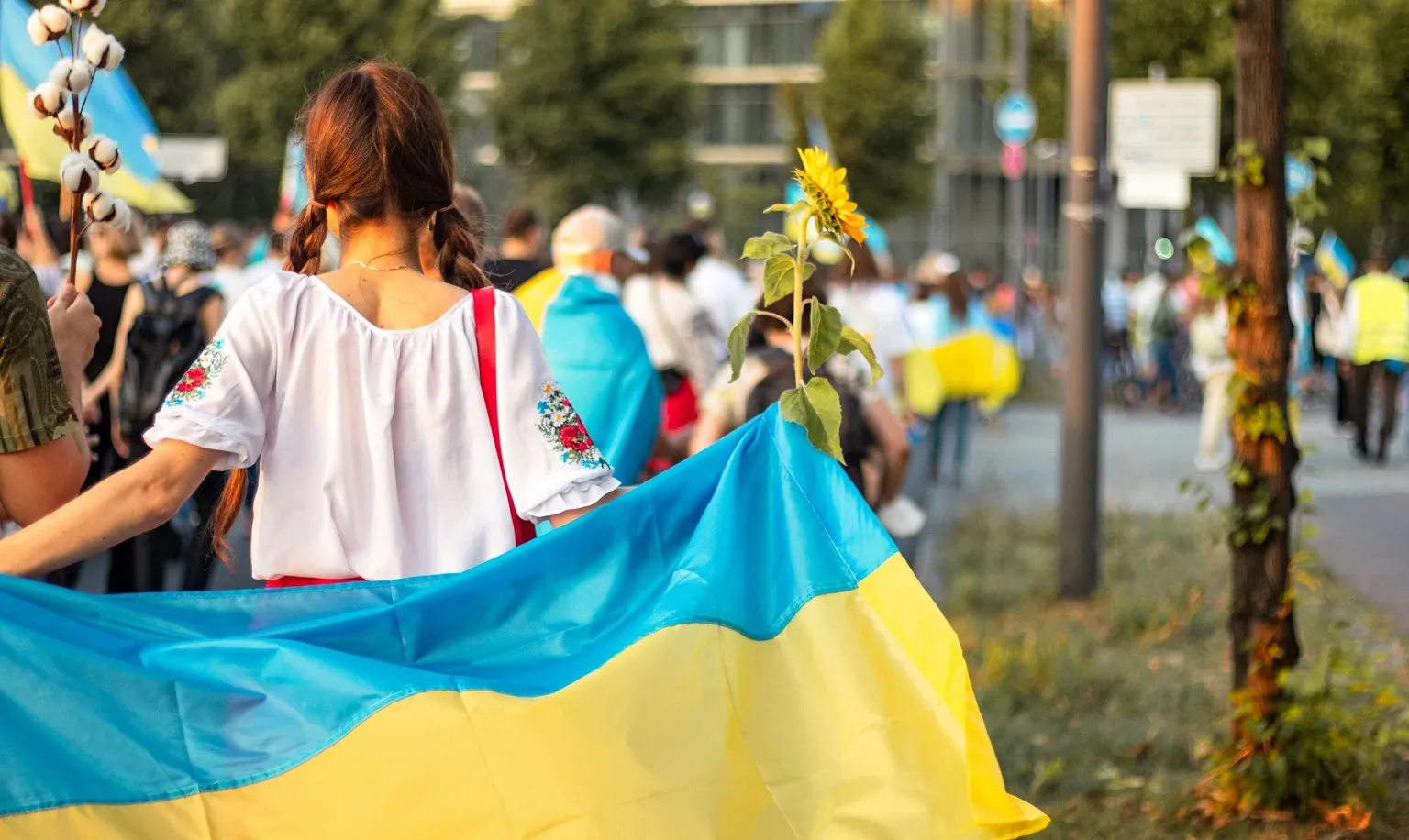Defining moments for democracy in Europe in 2022

Disclaimer: Opinions expressed in this commentary are those of the authors and do not necessarily represent the institutional position of International IDEA, its Board of Advisers or its Council of Member States.
War, nuclear threat, an energy crisis, inflation, mounting far-right populism and a pandemic—all issues Europe would be better off having left behind in the last century. Yet these challenges all converged on the continent in 2022, stirring discontent. With January around the corner, the month’s namesake, Janus, the Roman two-headed god capable of looking both backwards and forwards, can provide inspiration as old problems rise anew.
Russia’s war of aggression in Ukraine
The Russian war of aggression in Ukraine has shone a spotlight on the practice of democracy in the region and around the world. The Russian invasion, which has been marked by evidence of war crimes, is a clear attack on democracy as well as a sign of how democratization on Russian borders threatens the Putin regime. Deepening autocratization in Russia is widely evident, particularly through media censorship, the suppression of protests, forced conscription disproportionately affecting poorer regions and ethnic minorities, and deepening repression of the opposition, including pre-election pressure faced by opposition candidates in the September regional elections. Sham referenda were used to illegally annex Ukrainian territories. Many Russians have left the country as a result of the mobilisation, as discontent in Russia grows.
Yet Ukraine’s democracy, which was already on a positive trajectory since the 2014 Revolution of Dignity, has shown remarkable resilience. The reliance on robust institutions and a government that brought the country together have yielded creative solutions in a time of extraordinary conditions. Apart from the government’s actions to protect institutions and democratic processes, civil society and the media have been powerful drivers of accountability and respect for human rights as vital factors in not only winning the war but in protecting democracy as well. The fight to preserve democracy is nevertheless set to continue and requires support from international partners.
Freedom of expression under attack
Reliable and impartial information becomes all the more essential in the context of armed conflict and looming economic crisis. The Media Freedom Rapid Response, which tracks press and media freedoms in EU Member States and candidate countries, reported cases of makeshift explosives targeting reporters in Greece and incidents of police brutality against journalists. In Türkiye, journalists were arrested while covering protests, including the Istanbul Pride Parade and a Gezi Park memorial demonstration organized over the summer. There are hopes that the Media Freedom Act, an initiative meant to safeguard media independence and pluralism in the EU, will bolster free speech and press freedoms going forward. The EU Council has completed its first review of the Act amid calls for further improvement.
Repression of gender equality undermines Europe’s common moral ground
While 2022 was, in many ways, a period marked by the defence of shared values, countries across Europe—and debates within countries—pulled in starkly different directions over issues related to gender equality and sexual orientation. These issues may represent a chink in Europe’s moral armour. Hungary and Poland have further restricted abortion rights. In contrast, the Finnish Parliament has updated a legislation allowing women to obtain the opinion of only one doctor before getting access to an abortion (formerly two). Spain passed affirmative-consent legislation, a broad package which, among other things, offers income support to women affected by sexual violence and criminalises street harassment. At the same time, the passage of the law has led to sexist attacks by opposition parties against its main champion, equality minister Irene Montero. Threats against LGBTQIA+ rights have also afflicted both Europe’s high-performing democracies and non-democracies. Hate crimes were committed against LGBTQIA+ communities from Slovakia to Serbia, and discriminatory rhetoric has been heard from the new leadership in Italy.
Far-right populism gets boost in elections across Europe
Many parties gaining ground display xenophobic, anti-immigrant, and nationalist tendencies. In Hungary’s elections in May, the Fidesz party won by a wide margin and the ethno-nationalist Mi Hazánk Mozgalom (Our Homeland Movement) party is represented in the Parliament for the first time. The Fratelli d’Italia won Italy’s elections and established the country’s farthest right government since Mussolini. Other far-right parties gained seats in legislatures in Portugal, France, and Bulgaria and Sweden. Finally, far-right political groups are becoming increasingly influential at the European Parliament level, making them more difficult for mainstream groups to ignore. Combined, they could become the third-biggest contingent in European Parliament, yet ideological differences—including approaches to issues from Russia to the politics of religion—have so far kept them apart.
The support for these parties comes partially from their promise to radically transform outdated systems and from the convergence of the political centre with the far-right. Migration has proven to be a hot-button issue, sparking debate across the region (and the world). Since the migrant crisis in 2015, the far-right has been able to capitalise on unresolved concerns related to how migration impacts domestic economies, job opportunities, and social welfare systems. Russia has taken advantage of insecurities and concerns, actively attempting to manipulate public opinion on Ukrainian migrants in Europe through targeted misinformation campaigns.
At the same time, the outpouring of support and welcome for Ukrainian refugees in early 2022 stood in sharp contrast to the resistance with which refugees from other parts of the world have been met over the years. The sharp contrasts have led to a serious questioning of long unresolved problems related to racism and discrimination in Europe and around the world.
Slovenia halts democratic erosion
Data from the Global State for Democracy Indices show that Slovenia saw declines in seven indicators in 2021 compared to five years ago. In 2022, however, the nation showed that recovery from democratic backsliding is possible: Since Janez Janša, three-time Premier and Viktor Orbán copy-cat, was voted out of office in April, Slovenia’s new centre-left government has moved to lift tight immigration restrictions, legalise same-sex marriage and adoption, and protect media freedoms.
To watch in 2023
Polish parliamentary elections scheduled for autumn will be decisive in terms of whether a change in direction can be brought about electorally. It will be important to watch whether Slovenia can keep up the momentum. Recent referenda have affirmed public support for the government’s legislative agenda. At the supranational level, the status of the landmark European Media Freedom Act should be followed closely in 2023, as the law attempts to harmonise and support freedom of expression across the bloc. Finally, attention should be paid to safeguarding minority rights from the fallout of divisions related to gender equality, and the growing predominance of far-right ideologies in political decision-making. European democracy braces for whether these developments can insulate it from Europe’s grim déjà vu.





